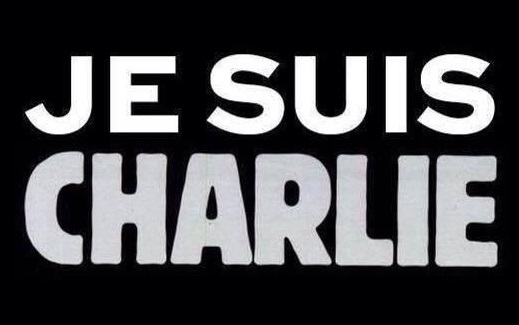While trying to absorb the awful, awful news out of Paris this morning, I kept thinking of this passage from the Rubaiyat of Omar Khayyam, addressed to the poet’s detractors:
But yours the cold heart, and the murderous tongue,
The wintry soul that hates to hear a song,
The close-shut fist, the mean and measuring eye,
And all the little poisoned ways of wrong.
Although these words were penned almost a thousand years ago, you couldn’t write a more apt description of the men who committed this atrocity against Charlie Hebdo, the ruthlessly satirical leftist magazine that’s never hesitated to break a taboo or tip over a sacred cow, including but not limited to cartoons depicting Mohammed. At least two heavily armed gunmen stormed the magazine’s office, spraying bullets while shouting “Allahu akbar!“, before making a shocking getaway. Twelve innocent people are reported dead, including the editor-in-chief Stéphane Charbonnier, four famous cartoonists and two police officers. (Charbonnier, an atheist, shrugged at the possibility of violence in a 2012 interview: “It sounds pompous, but I prefer to die standing than on my knees.”)
The people who did this were murderously angry at those who mocked them and treated their dogmas lightly. They wanted to put a bloody end to ridicule of their beliefs, and I greatly fear that they’ve succeeded: not that they’ve stopped satire altogether, they can never do that, but that one outspoken voice has been silenced for good. Charlie Hebdo has survived threats and attacks before (including the firebombing of their office in 2011), but I won’t be surprised if it never recovers from a trauma as shattering as this.
In our dealings with the Muslim world, the nations of the West haven’t always been guiltless. There have been acts of violence that, however savage and disproportionate, were rooted in real grievances. But that isn’t the case here. From all indications, this was a purely religious crime, in that it had no motivation other than murderous rage against satire and the demand that free speech bow to dogma.
What Khayyam captured so well is the mindset of the fanatic: a rigid and austere worldview that wants to flense away everything that’s beautiful, everything that’s pleasurable, everything that’s imaginative, everything that doesn’t fit into the straight lines and sharp corners of their vision. The haters of laughter who committed this massacre, in this respect, are kindred to the Taliban who sought to ban almost all music in the territory they controlled, and were also hostile to art and history, shown by their infamous destruction of the Buddhas of Bamiyan. The same is true of the Islamists in Mali who destroyed ancient Sufi tombs in Timbuktu, or the Saudi clerics who agitate for a ban on filmmaking, or the Islamic State thugs who wall off public parks and shutter cafes… the list goes on and on.
No matter how they rage against modernity and all it entails, these nihilist killers are doomed to fail. The sterile and scoured world they want to recreate will never come back, if it ever existed at all. They can’t turn back the clock on the human race; they can’t stamp out every thought and idea that differs from their own. The worst they can do is commit random, futile spasms of violence like this. Against the grand sweep of civilization, that amounts to less than nothing… but today, on the human scale, that knowledge is cold comfort indeed.
Collective guilt is always immoral, and so I don’t hold all Muslims responsible for this horrendous crime. But the bitter truth is that this will keep happening as long as religion demands unearned respect for the invisible. As long as there are people who insist that long-held beliefs are too sacred to be questioned, as long as there are people who demand that their faith receive special exemption from criticism and ridicule, to that extent we foster a climate in which murderous fanaticism can take root and grow.
